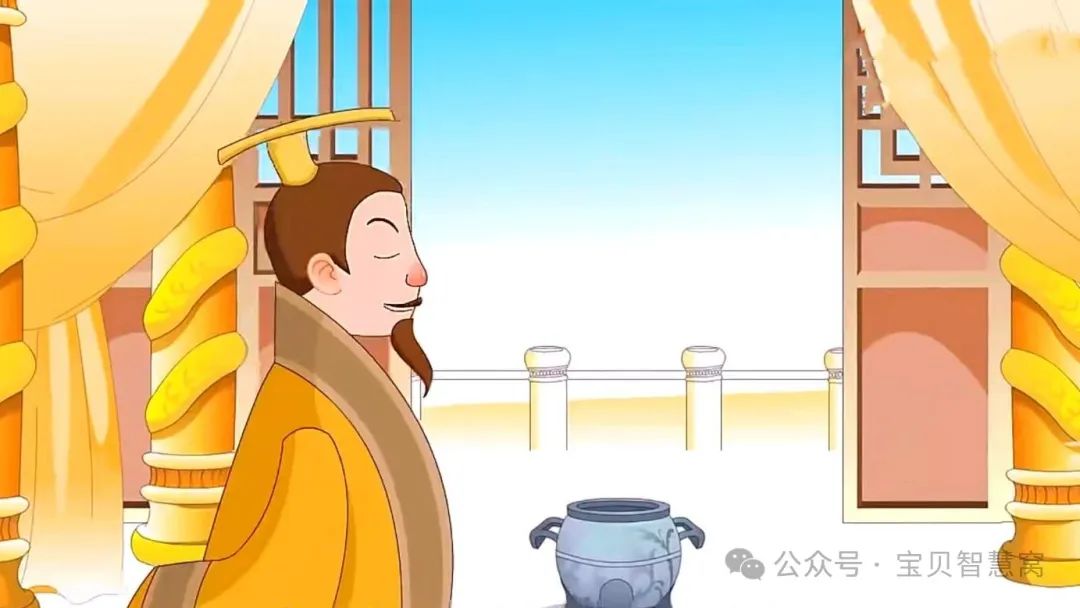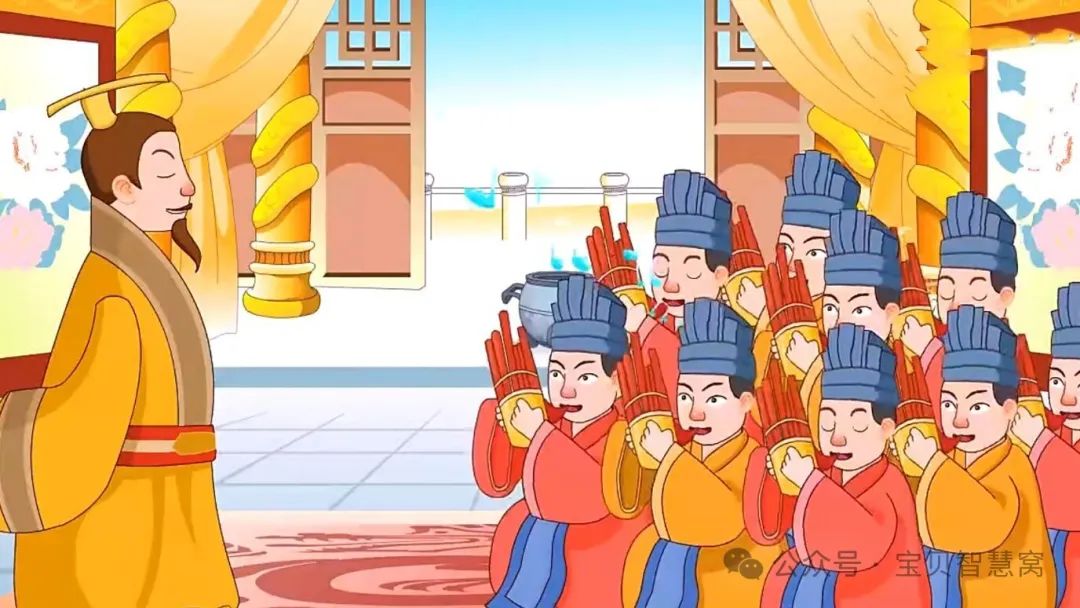用英语讲中国文化——Pretend to play the yu 滥竽充数
滥竽充数
Pretend to play the yu
源自《韩非子·内储说上》,用来比喻没有真才实学的人冒充有本领的人。
Originated from "Han Feizi·Nei Chu Shuo Shang", it is used to describe people who have no real talent and knowledge pretending to be capable people.

在战国时期的齐国,这是一个诸侯争霸、百家争鸣的时代。
In the Warring States Period, Qi State was an era of hegemony among princes and a hundred schools of thought.
在这个时代背景下,齐宣王作为一位热爱音乐的国君,特别喜欢听人吹竽(yú),尤其钟爱大合奏。
In this era, King Xuan of Qi, as a monarch who loved music, especially liked to listen to people playing the yu, especially loved the big ensemble.

每次都要三百人一起吹奏,场面非常壮观。
Every time, three hundred people played together, and the scene was very spectacular.
南郭处士听说了这个消息,虽然他不会吹竽,但还是混入了乐队中。
Nan Guo Chushi heard the news, although he could not play the yu, but he still mixed into the band.

每次演出时,南郭处士都装模作样地拿着竽,跟着大家摇头晃脑,做出吹奏的样子,因为他知道齐宣王只看人数,不听个人的演奏。
During each performance, Nan Guo Chushi pretended to hold the yu, shook his head with everyone, and pretended to play it, because he knew that King Xuan of Qi only looked at the number of people and did not listen to individual performances.
就这样,他混了好几年,白拿俸禄,而齐宣王也一直未发现。
In this way, he mixed for several years, taking salaries for nothing, and King Xuan of Qi never found out.

后来,齐宣王去世,他的儿子齐湣(mǐn)王继位。
Later, King Xuan of Qi died and his son King Min of Qi succeeded to the throne.
齐湣王也喜欢听竽,但他喜欢听独奏,要求乐队成员一个一个地吹给他听。
King Min of Qi also liked to listen to the 竽, but he preferred to listen to solo performances, and asked the band members to play for him one by one.

这时,南郭处士害怕被识破,只好偷偷地溜走了。
At this time, Nan Guo was afraid of being discovered, so he had to sneak away.
这个故事告诉我们:没有真才实学,靠混日子是行不通的。一旦遇到真正考验的时候,那些“滥竽充数”的人就会原形毕露。
This story tells us: Without real talent and knowledge, it is not feasible to just muddle through. Once faced with a real test, those who "play the yu to fill the numbers" will be exposed.
